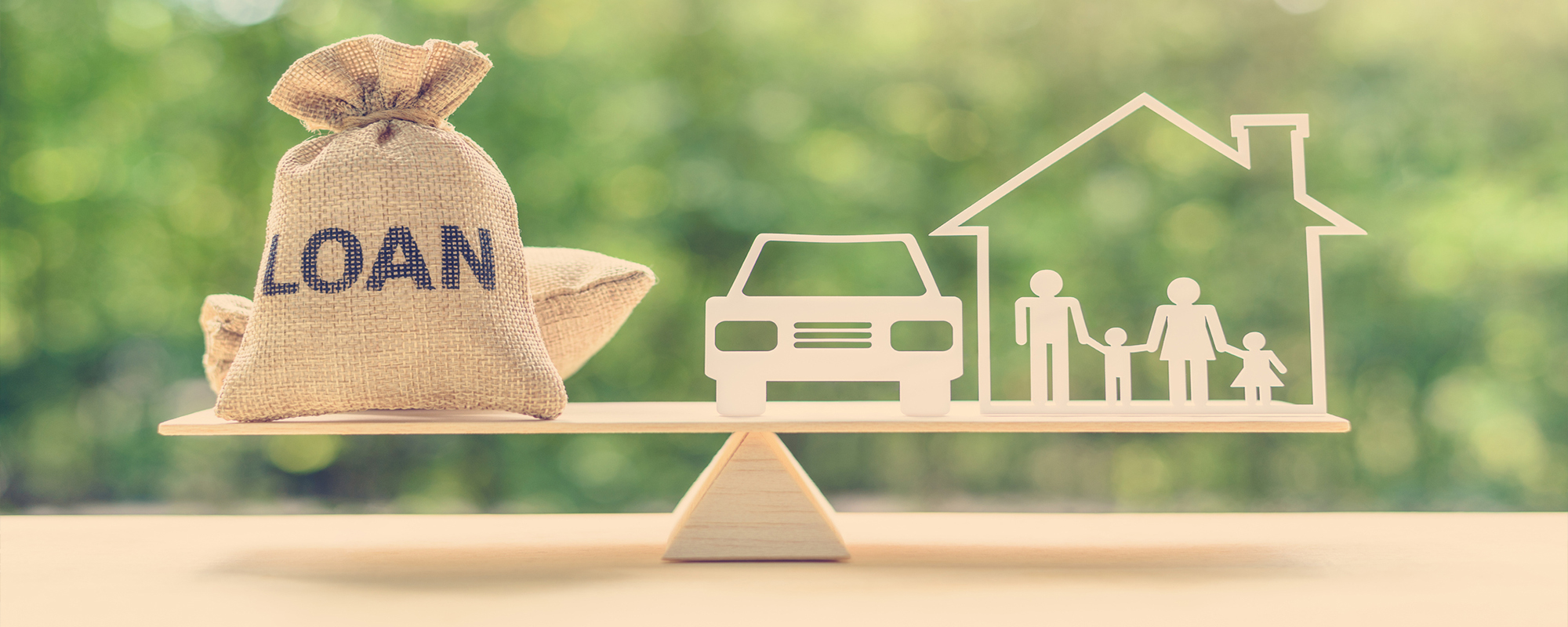Top Tips for Navigating Pre Approval Student Loans with Confidence
Understanding the Effect of Rates Of Interest on Home Loans for First-Time Purchasers
Browsing the maze of home car loans can be discouraging for first-time buyers, particularly when rate of interest rates play an essential duty in forming their financial journey. The option between adjustable-rate and fixed home loans brings considerable repercussions, influencing month-to-month spending plans and long-term monetary security. As rate of interest rates change with economic changes, understanding their determination becomes crucial.
Exactly How Interest Prices Are Established
Passion rates on mortgage are established by a complicated interplay of financial aspects and policies. The key motorist is the monetary plan established by reserve banks, such as the Federal Book in the United States, which readjusts the federal funds rate to affect economic task. When the reserve bank elevates this rate, obtaining ends up being more pricey, typically bring about increased home mortgage rates of interest. Alternatively, reducing the government funds rate can make loaning more affordable, potentially minimizing mortgage rates.
One more significant element is rising cost of living. Greater inflation normally leads to higher passion rates as lenders demand even more go back to offset the decreasing buying power of future repayments. Economic growth likewise plays a vital duty; in periods of robust economic performance, demand for credit history boosts, which can increase passion prices.
Additionally, the bond market considerably affects home loan rates. Long-lasting rate of interest rates, consisting of those for home loans, are closely tied to yields on government bonds. As bond returns climb, so do home mortgage rates, reflecting the enhanced expense of long-lasting borrowing.

Kinds Of Rate Of Interest
Understanding the various kinds of interest prices is essential to comprehending exactly how home car loans function. There are largely two groups of rate of interest prices that customers come across: taken care of and variable. A fixed rates of interest stays consistent throughout the term of the loan. This uses predictability in monthly repayments, providing debtors with security and ease in budgeting. It is specifically beneficial in settings where future rates of interest rises are anticipated.
On the other hand, a variable rate of interest, additionally referred to as an adjustable rate, changes with time, generally in feedback to changes in a specified criteria or index. These prices often start lower than taken care of prices, which can be attractive to novice purchasers. Nonetheless, they require the threat of raising in time, possibly leading to greater total prices if market prices increase.
Additionally, some lenders provide hybrid rate of interest prices, integrating aspects of both taken care of and variable prices. An introductory period with a set price may be complied with by a variable rate. Understanding these differences is crucial for borrowers to make informed decisions that align with their financial scenarios and take the chance of resistance, as each type presents possible downsides and special advantages.

Influence On Regular Monthly Payments
Month-to-month repayments on mortgage are straight influenced by the type of rates of interest selected, which can dramatically affect a debtor's monetary planning. Fixed-rate home loans provide security, as the rates of interest continues to be the same over the loan's term, making sure that month-to-month payments stay consistent. This predictability aids in budget plan preparation, providing a clear monetary photo over the loan's duration. Alternatively, adjustable-rate mortgages (ARMs) at first present reduced rates of interest, which can result in smaller sized first payments. These prices are subject to fluctuations based on market problems after the first set duration, possibly increasing regular monthly commitments.
The option in between a fixed-rate and a variable-rate mortgage can have instant consequences on a property buyer's regular monthly budget plan. Fixed-rate finances secure versus market volatility, providing assurance yet usually at a greater preliminary rate contrasted to ARMs. For debtors preparing to remain in their homes lasting, this can be helpful. On the various other hand, ARMs might match buyers anticipating earnings growth or those intending to sell prior to the rate change occurs, permitting them to take advantage of on reduced repayments. Ultimately, recognizing these dynamics is essential for new purchasers to handle their regular monthly settlements efficiently and straighten them with their monetary techniques.
Long-term Financial Effects
The choice of rates of interest kind for a home loan extends past prompt monthly repayments, bring substantial lasting economic ramifications. A fixed-rate home mortgage, as an example, offers stability by securing passion prices throughout of the finance term, protecting consumers from future price rises. This predictability can help in long-lasting financial preparation, enabling property owners to anticipate expenditures without the risk of climbing settlements. Nonetheless, if market prices drop, customers with a fixed-rate home loan find more info may lose out on possible savings webpage unless they refinance.
Conversely, a variable-rate mortgage (ARM) typically starts with a lower rate of interest, which can result in reduced preliminary payments. With time, nevertheless, the price can change based on market problems, potentially leading to greater payments. This irregularity introduces an element of unpredictability, which could influence monetary security if rates increase dramatically.

Strategies for Taking Care Of Prices
Browsing passion rates on home fundings requires critical planning to maximize monetary outcomes. Newbie buyers ought to consider securing rate of interest rates when they are favorable, as this can protect them from possible price walks before their car loan closing. Price locks usually last between 30 to 60 days and offer a procedure of assurance in a frequently unpredictable market. In addition, customers may explore discount points, which include paying an upfront cost to safeguard a lower interest price. This can bring about considerable cost savings over the funding's lifespan, specifically if the buyer intends to stay in the home long-term.
One more approach involves choosing the ideal finance kind. Fixed-rate home mortgages supply stability, shielding customers from future rate rises, while adjustable-rate mortgages (ARMs) might use lower preliminary rates with the threat of future adjustments. Purchasers need to carefully examine their economic situation and risk tolerance when selecting in between these alternatives (pre approval student loans).
Last but not least, maintaining a strong credit scores account pop over to these guys is critical. A greater credit report can dramatically boost arrangement power for more beneficial rates of interest. Frequently examining credit score records, resolving errors, and lowering arrearage can boost general creditworthiness, thus positioning buyers to safeguard one of the most useful prices offered.
Conclusion
A comprehensive understanding of rates of interest on home mortgage is necessary for new purchasers to make informed choices. Fixed-rate home mortgages provide stability with foreseeable payments, safeguarding against future price boosts, while variable-rate mortgages existing preliminary savings with possible future expense volatility. Evaluating the influence on monthly settlements and long-lasting economic health and wellness allows customers to align selections with monetary goals and take the chance of tolerance. Strategic monitoring of rates of interest can substantially influence homeownership success and monetary well-being.
When the main bank increases this price, borrowing comes to be more expensive, usually leading to raised home funding rate of interest rates.In comparison, a variable interest rate, likewise recognized as a flexible rate, varies over time, usually in feedback to changes in a specified criteria or index.Furthermore, some lending institutions offer hybrid interest rates, integrating components of both fixed and variable rates - pre approval student loans. A fixed-rate mortgage, for example, provides security by securing in passion prices for the period of the car loan term, securing consumers from future price rises. Novice homebuyers must take into consideration securing in interest prices when they are favorable, as this can shield them from potential rate hikes before their car loan closing